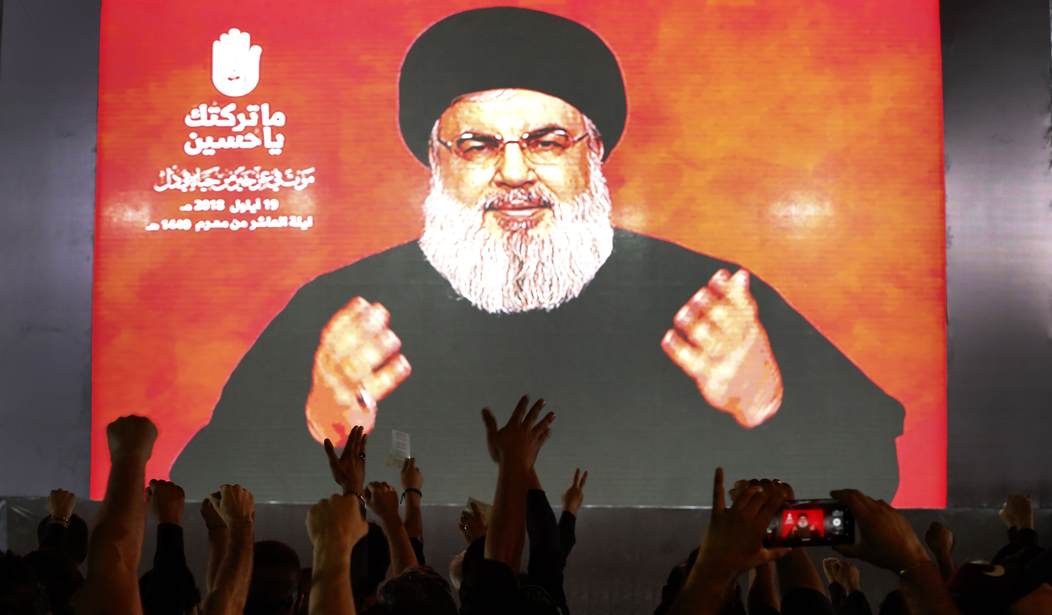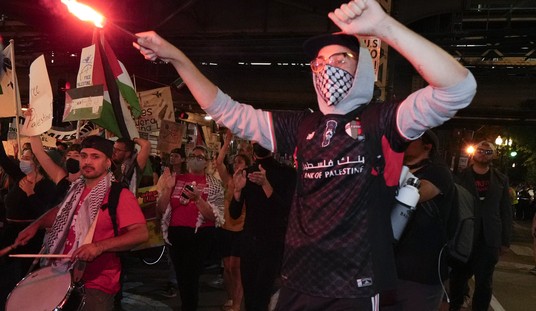Hezbollah and Israel exchanged rocket and drone fire on Saturday but both sides stopped short of striking the kind of blow that would cause either side to escalate the conflict.
The Hindustan Times caught some of the launches on video.
According to one former IDF commander. Shahar Shochat, Reserve Brigadier General in the Israeli Defense Force, the terrorists have begun to use drones far more often. He says that a "family of drones that boast a wide range of capabilities, that start from small-sized versions that can carry little weaponry, a small amount of explosives, and can fly for a limited distance, to more advanced [drones] such as the Shahed 136 and others, capable of flying for tens or hundreds of kilometers and carry tens of kilograms of explosive material," are being used for the first time in these numbers.
While Iran is Hezbollah's patron, the Islamic Republic does not control the terrorist group. But they have influence with Hezbollah leader Hassan Nasrallah and most commanders of their militia were trained in Iran and have deep ties to Iran's Revolutionary Guards force.
The point is simple. Iran doesn't wield the kind of direct influence over Hezbollah that would lead to the terrorists being ordered to attack Israel. But Iran's silence on the issue of Hezbollah rocket fire and drone attacks is as good as their assent.
Hezbollah has its own agenda in Lebanon and it often doesn't dovetail with Iran's.
That being said, it should be noted that Hezbollah is unique among terrorist groups. It has a civilian infrastructure that includes Shi'ite aid societies that support hundreds of thousands of Lebanon's poorest citizens, and a political party that is the dominant power in Lebanon's fractured government.
Nasrallah is a survivor. He is rarely seen in public, even on television. He knows there's a drone with his name on it waiting for him to surface. This has made the spiritual leader of Hezbollah very cautious. He's trying not to provoke Israel but he also doesn't want an opportunity for a propaganda victory to go by the wayside,
On November 11, Nasrallah spoke with relative restraint in his second speech, telling viewers that Hezbollah would expand its attacks on Israel to match their abuses of Palestinians or attacks on Lebanon but did not want to provoke a wider war.
The mismatch between Nasrallah’s tone and Israel’s response – promising to do to Beirut what it had done to Gaza – has raised questions including whether Israeli leaders have sensed some kind of hesitance or reluctance on the part of Nasrallah.
“Hezbollah does not have the same support they had in 2006,” Joseph Daher, author of "Hezbollah: The Political Economy of Lebanon’s Party of God," told Al Jazeera. “Socially and politically they are much more isolated.”
That's to be expected. Hezbollah's intervention in the Syrian civil war was very unpopular and their threats to protesters during the financial panic of 2019 were resented by ordinary citizens who were reduced to robbing banks just to get more than the daily allotment of currency.
In 2008, Hezbollah took over West Beirut when the Lebanese government attempted to dismantle its telecommunications network, angering many outside their direct support base. The party also saw dissent from past supporters during the 2019 October protests against the deteriorating situation in Lebanon.
In his speech on Saturday, Nasrallah cited “dissenting voices in Lebanon”, which could include figures like Prime Minister Najib Mikati and Druze community leader Walid Jumblatt, who have called to keep Lebanon out of a wider confrontation with Israel.
Some observers believe Nasrallah was referring to Lebanese Forces party leader Samir Geagea.
Lebanese Forces in the Christian political party in Lebanon's fractured politics. Samir Geagea. one of the old warhorses of Lebanese politics, ran a militia during the decade-long civil war in the 1990s.
“Hezbollah doesn’t see the Lebanese Forces as a military threat,” Nicholas Noe, who edited "Voice of Hezbollah: The Statements of Sayyed Hassan Nasrallah," said. “But they are a factor in their wider thinking.”
So Nasrallah not only has Israel to worry about, but the domestic opposition as well. Hezbollah's position is safe due to the fact that, besides the army, Hezbollah is the only armed militia in Lebanon. But politics in Lebanon can be quicksand and Nasrallah is in unfamiliar territory.










